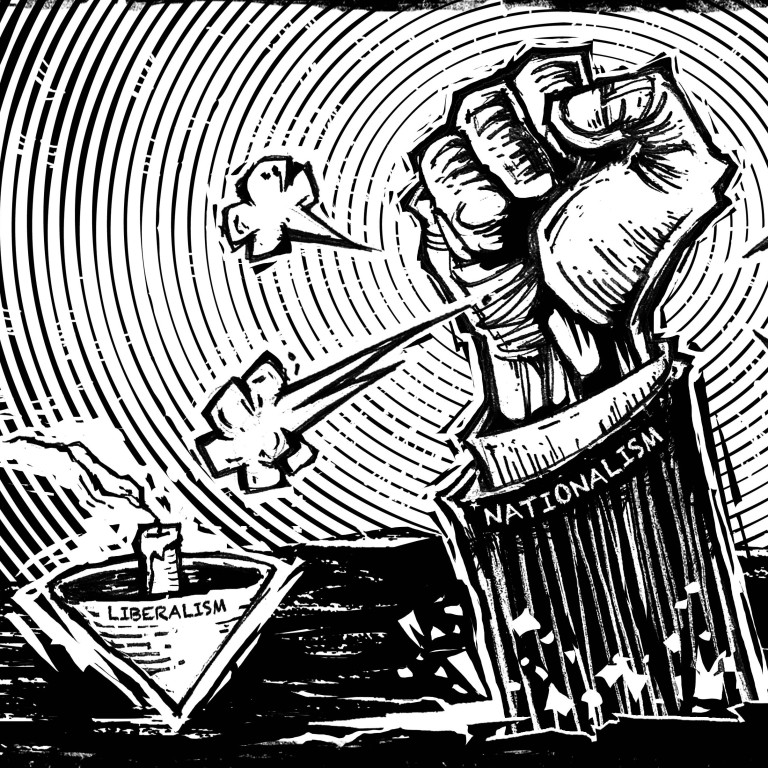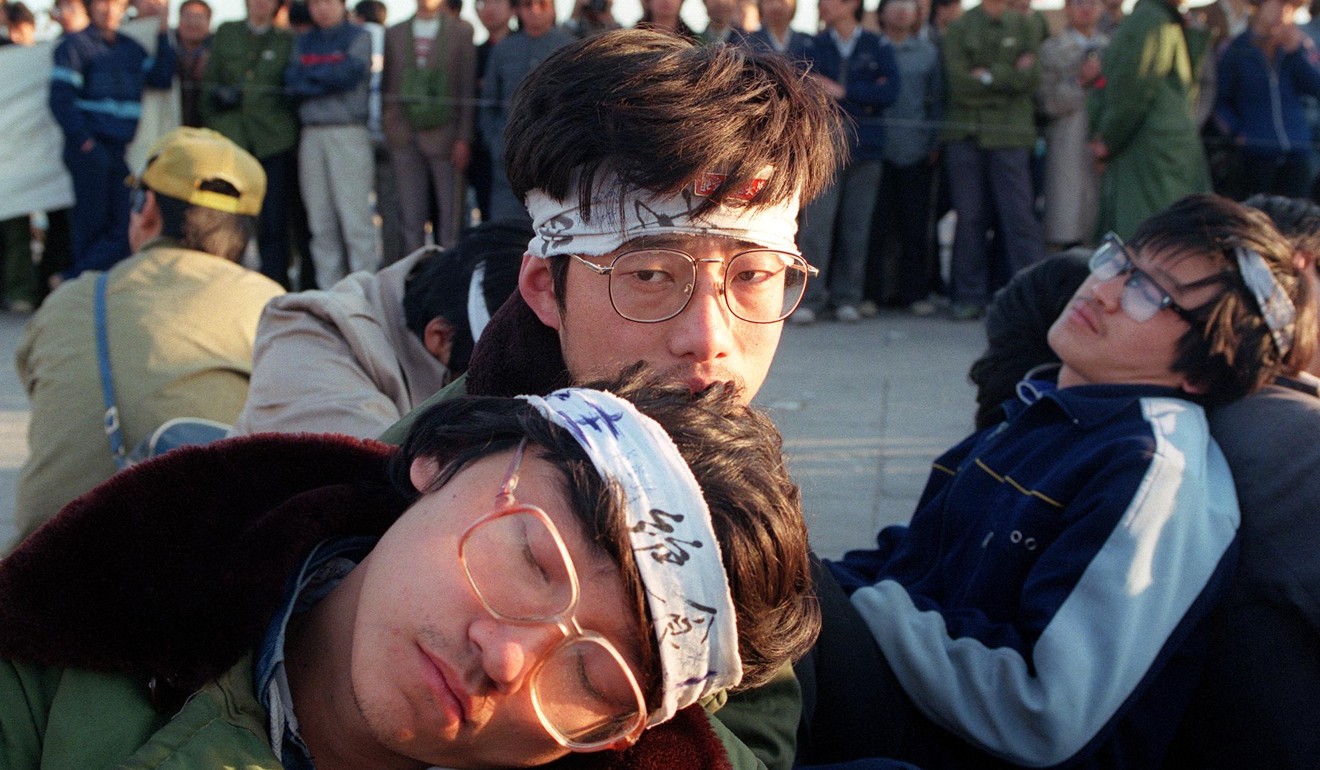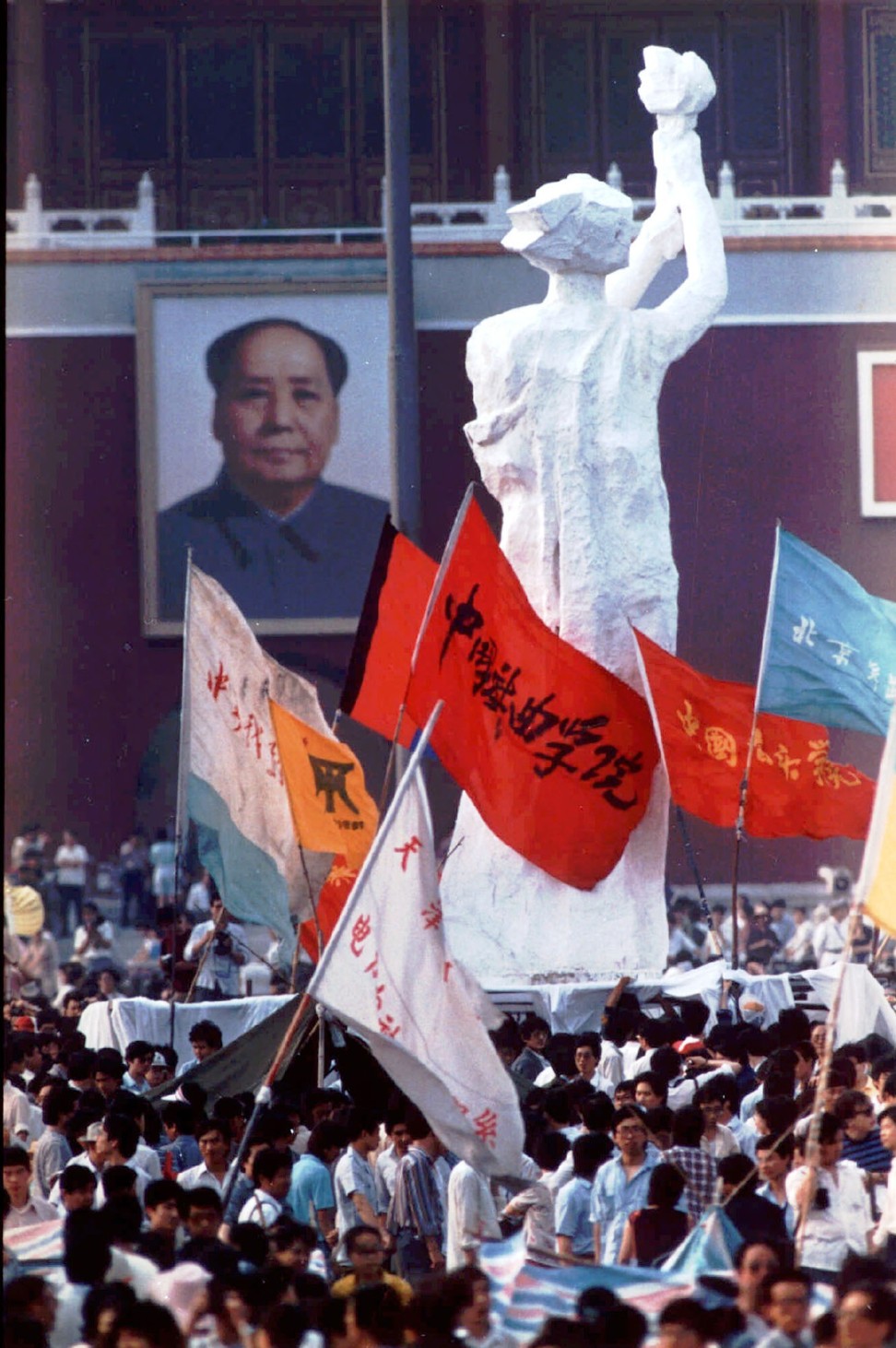
Generation Amnesia: why China’s youth don’t talk about Tiananmen
- Three decades have passed since the Tiananmen Square crackdown when troops fired on student-led pro-democracy protesters
- The shots were heard around the country and reverberate today despite persistent official censorship of the event
In the fourth in a six-part series, Mimi Lau and Phoebe Zhang look at how censorship, silence and time have created a gulf between the young people who witnessed the events and those who came after them.
Beijing-based writer Ma Bo, better known as Lao Gui, remembers taking his six-year-old son to the heart of the Chinese capital and hoisting the child on his shoulders to get a better view.
In the spring of 1989, crowds of students had poured into Tiananmen Square to demand greater accountability from the government.
Ma, then a journalist and an active participant in the movement, was keen for himself and his son to witness history unfold.
Then the tanks rolled through the square in a bloody crackdown in which hundreds of people, perhaps more than 1,000, died.
“I never thought they [the government] would really launch a rampage,” he said.
“It was too horrifying … I could never forget it.”
For Ma, the memories of those days are clear. But for his son, the time is one to forget.
“I even took him with me to one of the demonstrations. He was only six or seven,” he said.
“[But] my son … doesn’t care about politics … There is no way I can speak to him about it.”
In the three decades since the “June 4 incident”, surveillance cameras have sprouted from almost every pole and security teams keep constant watch on the square. Where elderly people once flew kites, special forces officers now stand guard.
A great change has also taken place among the young, opening up a generation gap in awareness and interest in the crackdown. For some, the youthful liberalism of the parents has given way to pragmatism or nationalism among the children. For others, the personal price of discussion is still too high.
Why Tiananmen protests still cast a shadow over Hong Kong politics
Zhang Shijun also avoids talking about June 4 with his child. Zhang was a medic with the People’s Liberation Army’s 54th Army Group, one of the military units called in to enforce martial law on the eve of the crackdown.
He resigned from the PLA just days later and has spoken publicly about his haunting memories of that night.
“I don’t think discussion of June 4 is getting increasingly irrelevant, even though 30 years have passed us by,” he told friends in Shandong province. “The more they want us to forget what happened, the more we need to talk about it.”
But despite his public outspokenness, Zhang told friends he would not bring up the events with his daughter unless she asked about it.
“It’s not that we don’t want to tell her, but she had enough of her share of trouble every time our home was raided over the years,” he said.
Zhang said his daughter had borne witness to his activism and felt anxious every time he was taken away.
“Every generation has their own share of historical burden,” he said. “If she wishes to learn more, there are ways for her to find out.”
Open discussion of the crackdown remains the biggest political taboo in China.
Andrew Nathan, a political scientist at Columbia University, said the Communist Party imposed complete censorship of June 4 because even discussing the possibility of “errors and crimes” would make the party’s “will to power” seem weak.
“Controlling speech sends a message that the party will not allow any opposition, and this message of determination makes people afraid that if they talk about forbidden topics they will be punished,” he said.
The cost of sweeping Tiananmen crackdown under the carpet
But historical issues could never be entirely covered up, Nathan said.
“The problem with repressing discussion of them is that when, somehow, they do get raised in the public sphere, the shock value and the danger to the regime’s legitimacy is all the greater.”
If you ask the millennials, I guarantee you 90 per cent of them don’t know.
Mention of the crackdown does occasionally slip through the censorship net.
In 2007, an advertisement paying tribute to the mothers of June 4 victims appeared in Chengdu Evening News. The young female clerk who accepted the advertisement had never heard about the crackdown and thought it was commemorating a mining disaster.
Some Chinese dissidents also have mobile phone numbers ending in 8964.
But most young Chinese are unaware of the date or the efforts to mark it.

A 26-year-old Shenzhen art teacher said she knew nothing about the Tiananmen crackdown until she came across a documentary on YouTube while visiting Vietnam in January.
“Your politics teacher won’t tell you, your history teacher won’t tell you, the adults won’t tell you, so there’s no way we’d know,” she said, asking that her name not be published.
“If you ask the millennials, I guarantee you 90 per cent of them don’t know.”
She said that when she watched the documentary she was terrified by the roar of the tanks, the sounds of chaos and the anguish of the crowd.
“I couldn’t even reach the shooting part,” she said.
She buried those emotions when she returned to China, saying no normal person would raise the topic in daily conversation.
“You couldn’t find this information any more after returning home unless you’re using a VPN … but I don’t usually do that because it’s too much trouble,” she said.
30 years on from Tiananmen, why Beijing still thinks it got it right
Sarah Lin, a 21-year-old university student in the United States, was willing to go to that trouble. She first learned about the crackdown from her aunt, who was a university student in Shanghai in 1989 and helped distribute fliers about the protest.
Her aunt only spoke about it briefly and vaguely, but Lin looked it up herself later and found photos and testimony from people who survived the crackdown.
“I definitely felt terrible, not to mention there were some stupid comments saying [the students] deserved this suppression,” she said.
Lin said she had discussed it with her peers, but found they were not interested in revisiting that history. Some acknowledged nonchalantly that the crackdown had occurred, while others refused to believe what she said.
“They said, how do I know you’re telling me the truth, or whether these foreign journalists are telling the truth?” she said.
Tsinghua University sociologist Guo Yuhua said many young people nowadays were indifferent to politics and more focused on the pursuit of prosperity – in large part because of government censorship.
That millennial pragmatism was in sharp contrast to the ideological liberation of the 1980s, which spawned diverse theories and philosophies. But liberal ideals snuffed out soon after they emerged and so never gained a place in mainstream Chinese politics, she said.
“But the thing is, people don’t realise that without the establishment of a constitutional democracy there’s no cage to contain power. Without judicial independence, without civil society, without freedom of speech, there’s no way for a normal and gradually improving life and there’s no harmonious society,” she said.
How Tiananmen coloured the world of artist Chen Guang
Shanghai-based historian Ni Lexiong, a military affairs expert, agreed that the core social values and beliefs behind 1989 had vanished, leaving next to no chance of the protests ever being repeated.
Ni said the romantic communist ideals instilled in young minds during late leader Mao Zedong’s era had crumbled in the face of party corruption 30 years ago, prompting the students who took part in the protest to begin doubting the political beliefs and values they once trusted.
“Now everybody is looking for money,” he said. “The June 4 repression tells them the stakes of engaging in a political movement are too high. Who would dare to do such a thing?”
An upsurge in nationalism and patriotism in China has been directly generated by decades of rapid economic growth, according to Zheng Yongnian, director of the East Asian Institute at the National University of Singapore.
“The young people in China have not lived through China’s most painful and difficult time,” he said. “Coupled with official propaganda, their patriotic or nationalistic sentiment is likely to be spontaneous.”
But the online information came from different sources, some very dodgy. I was not sure which version to believe.
One place where the importance of June 4 is being kept alive is within the party itself.
Eddie Wang, a young cadre with the Communist Youth League, said the crackdown was part of a political preparation course he had to take before his promotion to division head with the league.
“June 4 was part of the course for young cadres,” he said. “Certainly, the narrative was the official one. But we learned the sensitive words, people and anniversaries.”
Wang was already aware of June 4, having searched for information about the crackdown online while studying in Australia.
“But the online information came from different sources, some very dodgy. I was not sure which version to believe,” he said.
“Because of my overseas experiences, I knew more than what the party wrote in the training material [during the course]. Not all my classmates were mentally prepared like me. I could see some of them were shocked to learn this part of history.”
He likened his own patriotism to that of the students in Tiananmen Square in 1989.
“We all want a better China,” Wang said. “As of now, I think a better China requires more down-to-earth hard work, rather than empty slogans about democracy.”
The next instalment in this series will look at efforts to keep the June 4 flame alive in Hong Kong.








.jpg?itok=H5_PTCSf&v=1700020945)
